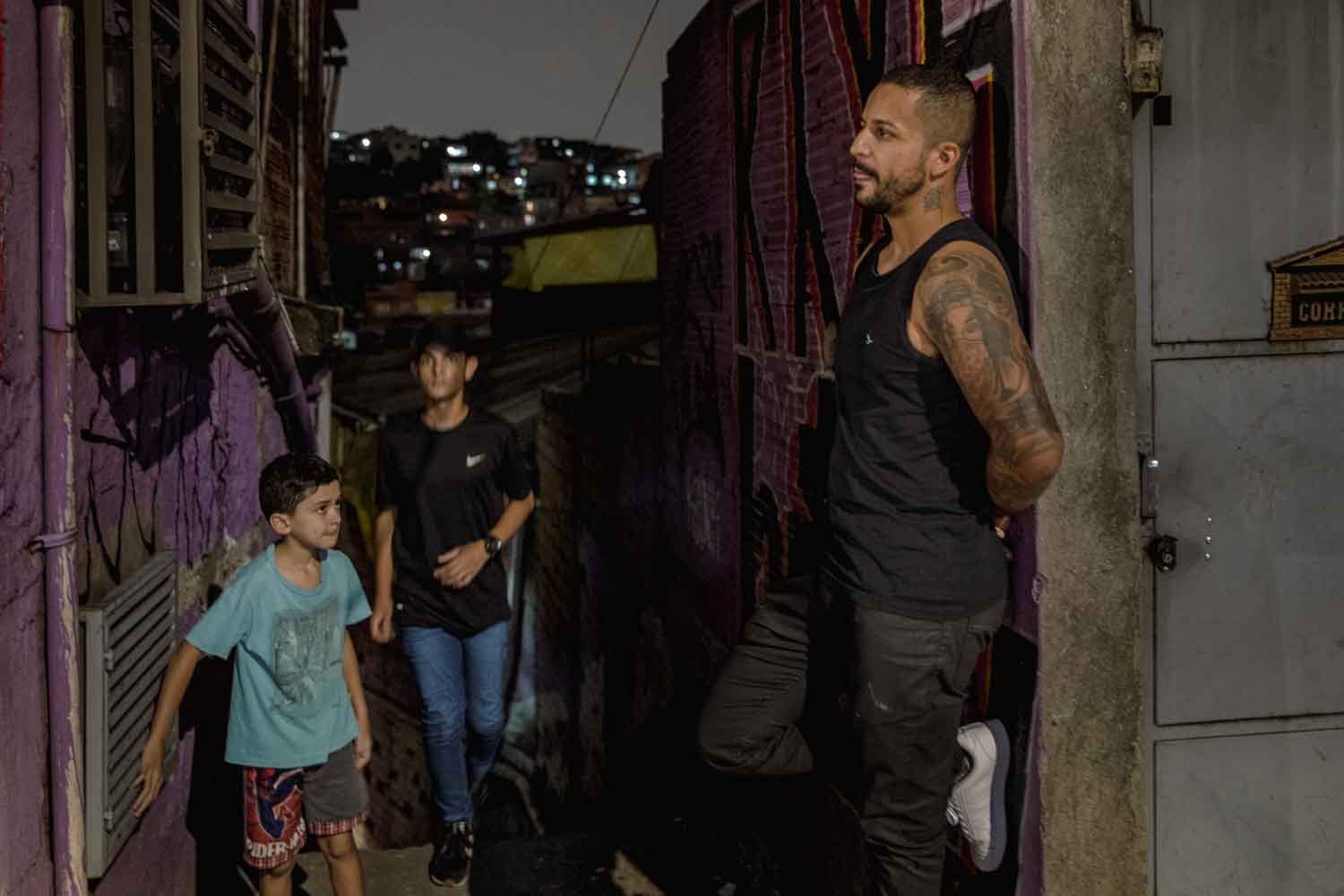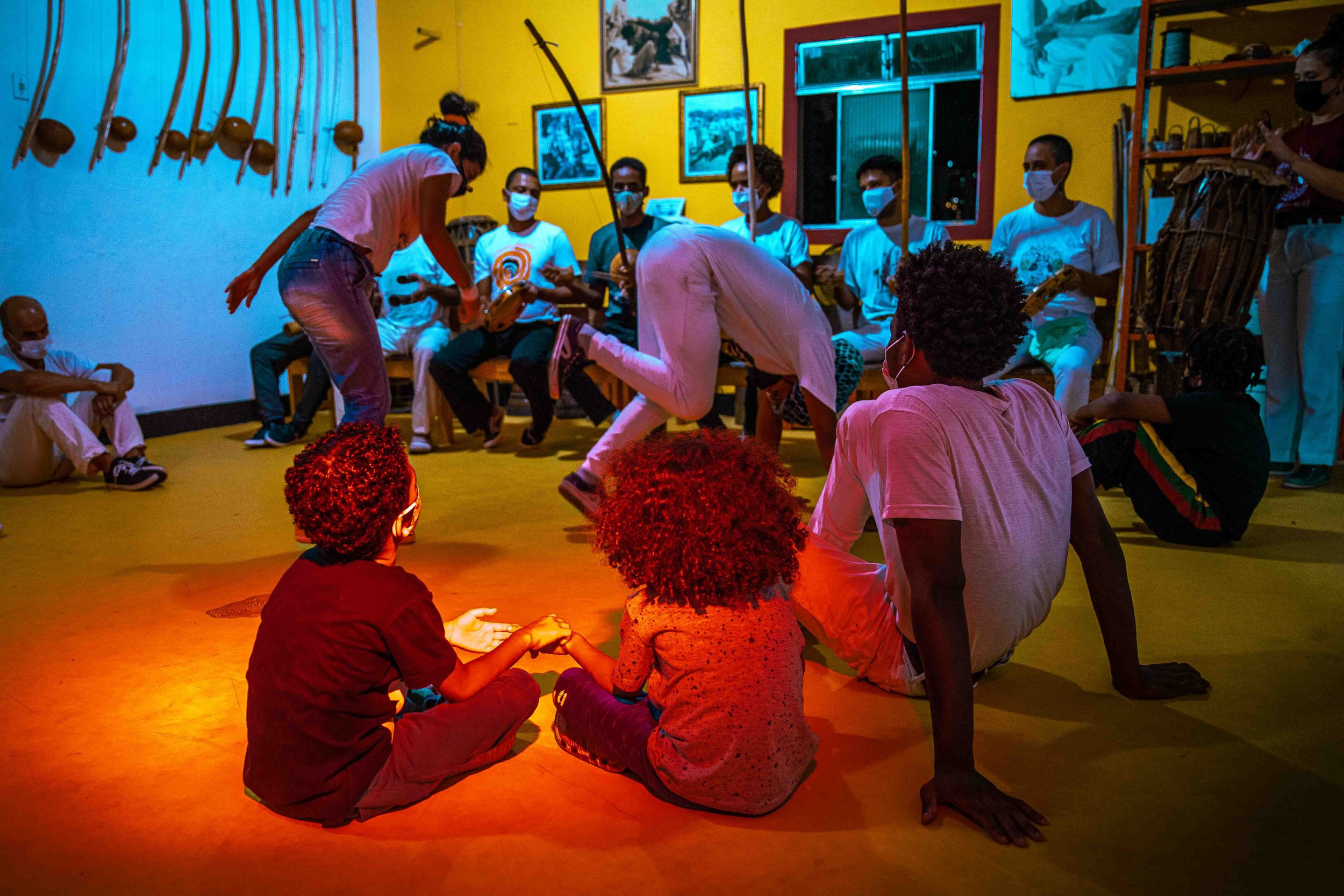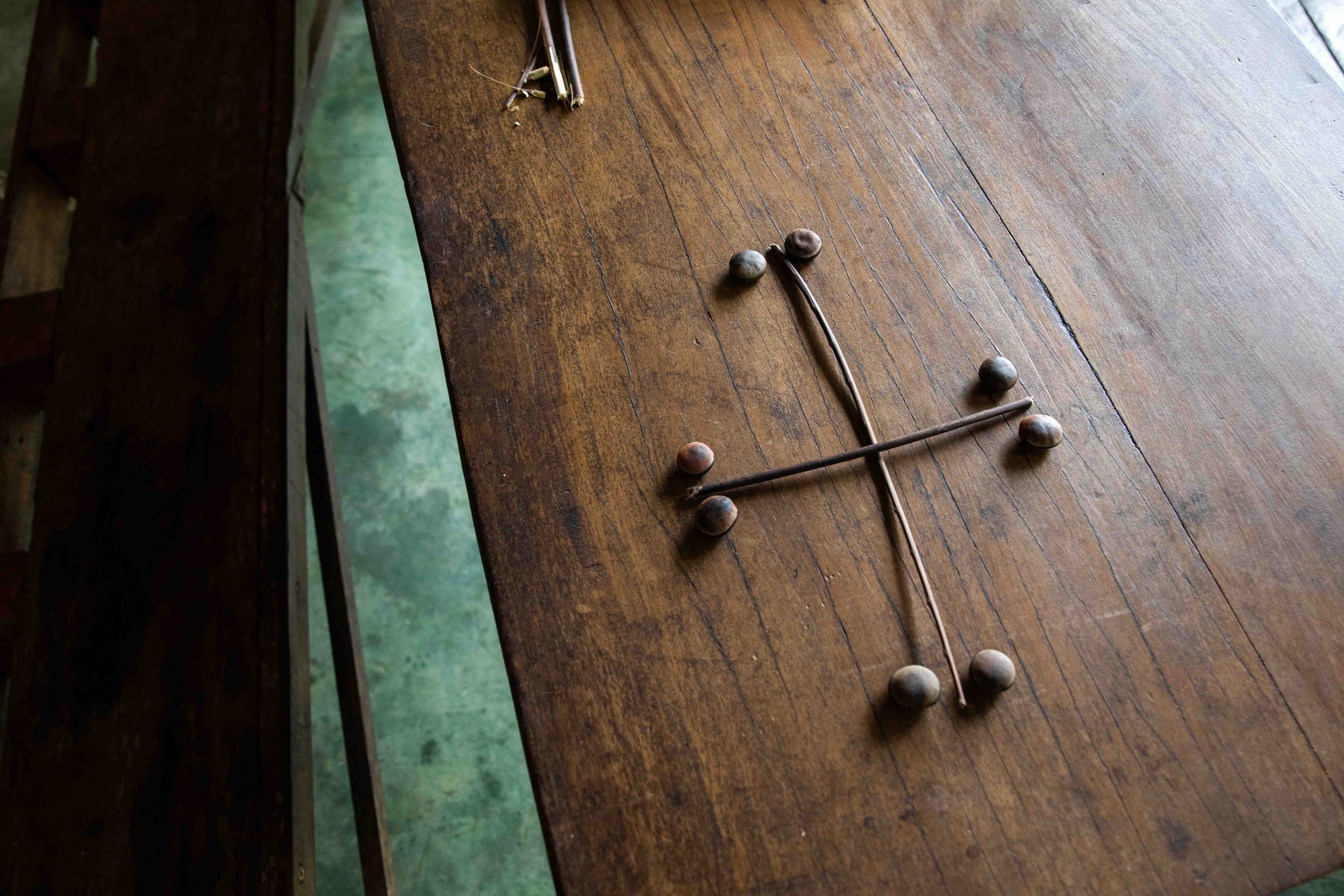Resistance Doesn’t Walk Alone - London School of Economics
I traveled the country of Brazil in 2022, interviewing, photographing and trying to understand the dynamics of the organizations and people who are fighting against inequality in that country through various lenses. These photographs were eventually presented at the launch of the new LSE reserach theme “The Politics of Inequality” in London in July 2022.
Brazilian society, while fragmented and highly stratified in certain contexts, is also full of solidarity. There is no way to discuss inequality in cities, for example, without taking into context the teeming multitudes of rich and poor on the beaches of Rio, or the confounding cosmopolitanism of the pixação-covered streets of central São Paulo, or the reverent joy in Afro-Brazilian culture in Salvador. Perhaps most inspiring to me is the power in how Brazilians politically organize, not in a distant way (by only voting at national elections, for example) but in the small communities of occupied buildings, within rural indigenous communities, among self-organized subcultures of influencers on Tik Tok and Instagram, and in the vast peripheral areas of major cities. Black, Indigenous, and migrant groups have found power, real power, in organizing around common principles, and in their almost unanimous disdain of the right-wing government of Jair Bolsonaro.
Residents of the Complexo da Maré in Rio de Janeiro participate in discussions around inequality, rights, and improvements to their community. Maré, home to slain activist Marielle Franco, is one of many favelas across the city that struggles with crime, state neglect, and racism.
Mildo Ferreira inside an occupied building in São Paulo.
Representations of inequality tend to showcase poverty, suffering, and the plight of survival amongst disadvantaged populations. Resistance Doesn’t Walk Alone inverts this gaze by focusing on collective organising, solidarity, and protest. In doing so, the series shows how people in Brazil act in opposition to larger forces of inequality. Johnny Miller’s aerial images take the macro point of view where spatial and structural inequalities are expressed. These are coupled with portraits of those who experience marginalisation on a daily basis, and yet they resist, they persist. Miller insists on a particular perspective by stylising the images in terms of colour and composition, reminding the viewer that they are looking at something that is manipulated through a lens. These techniques are a subtle reminder that there is only so much lived inequality that outsiders can know. The series is a meaningful glimpse into the diversity of experiences across Brazil, presenting a multiplicity of strategies that people create to combat inequality.
Kara Blackmore, Curator, London School of Economics, 2022
Gilmar, 11, on the roof of the Occupy Mauá, a peaceful multi-story building in São Paulo occupied since 2007 and housing 237 families.
Boys on the roof of the Occupy Mauá during its 15th anniversary party.
Children hold hands during Capoeira class in Salvador.
View from the Church of the Brotherhood of Black Men Church, in Salvador.
Penha Aparecida Salvador in the church of Father Julio Lancelotti in Sāo Paulo .
Dona Cosma Miranda, vice-president of the Brotherhood of Black Men Church in Salvador, holding a bust of the “Slave Anastácia”.
A memorial to some of the 270 people who died in a mudslide in Brumadinho, when a tailings dam burst in 2019.
The 9th of July Occupy in São Paulo is situated amongst some of the city’s wealthiest real estate.
“It’s not enough to say Indigenous people are beautiful. We should elect Indigenous candidates to defeat the agribusinesses. What affects us, affects the whole world.” - Sonia Guajajara, São Paulo.
The Politics of Inequality research theme is co-hosted by LSE’s Atlantic Fellows for Social and Economic Equity and LSE International Inequalities Institute. It examines practices of resistance, contestation, solidarity, and everyday actions against social and economic inequalities. Through this research, we consider the experiences, the power, and the agency of people to adapt, challenge, and mobilise. The series of photographs for the exhibition, Resistance Doesn’t Walk Alone, by the Senior Atlantic Fellow for Social and Economic Equity, Johnny Miller,
is a project that is hosted as a part of this research theme. These photographs are a striking visual representation of both the experiences of people and communities across Brazil and an illustration of how inequalities are inscribed on and manifested in urban spaces and natural landscapes. This exhibition, which we are delighted to host at LSE, takes us on a journey through Brazil, sharing the stories and giving us a glimpse into the lives of people living in an unequal country.
Armine Ishkanian, Director of the International Inequalities Institute at the London School of Economics, 2022
Fridays for Future protest, São Paulo.
Indigenous People’s March, Brasilia.
Indigenous activists and social media influencers Samela Sateré-mawe and Tukuma Pataxó raise their fists in solidarity at the Acampamento Terra Livre (ATL) gathering in Brasilia.
Daví, leader and Xondaro (warrior) of the Jaraguá Guaraní community in São Paulo.
The Jaraguá lands are steadily encroached upon by illegal housing in São Paulo.
Raynan and Raylan, twins in the Aldeia Arapoã Kakyá, a bucolic riverside community set on acres of verdant land in the state of Minas Gerais.
Many mines in the state of Minas Gerais are constructed in a way that leads to massive environmental impacts. Mining disasters in the state have claimed hundreds of lives.
“The Oracle”, a game similar to those played on the west coast of Africa, in a quilombo near Ubatuba.
Joice Marques runs Casa Akotirene, a women’s group in Ceilândia which supports over 130 women, many of them single mothers.
Japão, a rapper from Ceilândia, in Praça da Bíblia (Bible Square).
Environmental activists from Perifa Sustantavel and Periferia Sem Fronteiras in Brasilândia, São Paulo.
Alte Nascimento, delivery driver and activist for iFood, in São Paulo.
This work was made possible with support from the Atlantic Fellows for Social and Economic Equity programme, hosted by the International Inequalities Institute of the London School of Economics and Political Science.
Scan these QR codes for a 3D experience of places of resistance in Brazil
Exhibition Catalog
Thank you to...
Sao Paulo
Mayara Longo Vivan
Maira Okada de Oliveira
Pedro Telles & Georgia Nicolau Instituto Procomum - @procomum
Christian Schrape
Adriana Sumi
Aldeia Jaraguá
Daví Guaraní
Catherine Calognomos
Cayque Castro
Casa do Povo - _casadopovo
FICA - @fundofica
Renato Cymbalista
Boxe Autônomo - @boxe_autonomo Kelvy Alecrim
Raphael Piva
Ana Druwe
Sonia Barbosa
Amanda Costa - @perifasustantavel Gaby & Mahyran
Danilo Pássaro - @perifasemfronteiras Padre Julio Lancellotti -
@padrejulio.lancellotti
Alessandra Martinelli
Penha Aparecida Salvador
Ocupação 9 do Julho - https://www. movimentosemtetodocentro.com.br/ocupacao-nove-de-julho
Ocupação Mauá -
@ocupamaua.oficial
Silmara Congo
Gilmar & Adysson
Alessandra Luvisotto
Mildo Ferreira
Ocupação São João
Altemicio do Nascimento -
@alte.nascimento
Fabiano Leite & Family
Movimento Sem-Teto do Centro -
@movimentomstc
Movimento Sem Terra -
@movimentosemterra
Tuca Vieira
Gui Christ
Nilton, Ana & Nina
Manaus
Dave Sicsu
Aldeias Infantis - @aldeiasinfantis Elaize Farias
Joanna Sultanum Calazans
Sarah Sophia
Amazonia Real - @amazonia_real Marlene Rodriguez
Winns
Susiela Pacheco do Silva Ronaldo Kokama
Edwaldo Almeida Prisco
Parque dos Tribos
Salvador
Jon Mangaba -
@mangabaproductions
Antônio Pereira
Igreja Rosário dos Pretos -
@irmandadedoshomenspretos Dona Cosma Miranda
Magno Santos Britto
Leonardo Ramos
Israel Batista da Concessa (Maloca) Jose Carlos de Oliveira
Oswaldo Santo Silva
Daniela Solis -
@espacoculturaldanielsolis Paulo Barreto (Master Poloca) Lais & Mother
Lazinho & OIadum
Lazaro
Grupo Nzinga Capoeira -
http://nzinga.org.br/
Brumadinho
Marco Tejuco
Alemão
Seu Antonio Pelourinho
Aldeia Arapoã Kakyá -
@aldeiaarapoakakia
Josiane Melo
AVABRUM - @avabrumoficial
Belo Horizonte
Fa.Vela - João Souza & Tatiana Silva - @maisfavela
Rio de Janeiro
Karol da Silva
Douglas Lopes
Roberto Gomes dos Santos
Quilombo da Gamboa
Sheila Maria Gonçalves de Souza - https://www.brazilidade.com.br/Redes da Maré -
https://www.redesdamare.org.br/en Maré de Noticias -
https://mareonline.com.br/Dominique
Ubatuba
Quilombo Caçandola
Neide Antunes de Sá
Nailton Antonio do Santos
Renata Faria
Diego & Cristina
Brasilia / Ceilandia
Sonia Guajajara - @guajajarasonia Samela Sateré-mawe -
@sam_sateremawe
Tukumã Pataxó - @tukuma_pataxo APIB - @apiboficial
Mídia India - @midiaindiaoficial
Mídia NINJA - @midianinja
Alfredo Mairu
Marcos Vinicius de Jesus Morais (Japão) Joyce Marquez - @casa.akotirene Bene Mayoruna
Oscar & Lino
Santos
Carlos Alberto Moraes de Oliveira
(Piloto)
Patricia dos Santos
Adriano Alves
Instituto Arte no Dique -
https://www.artenodique.com.br/







































































































